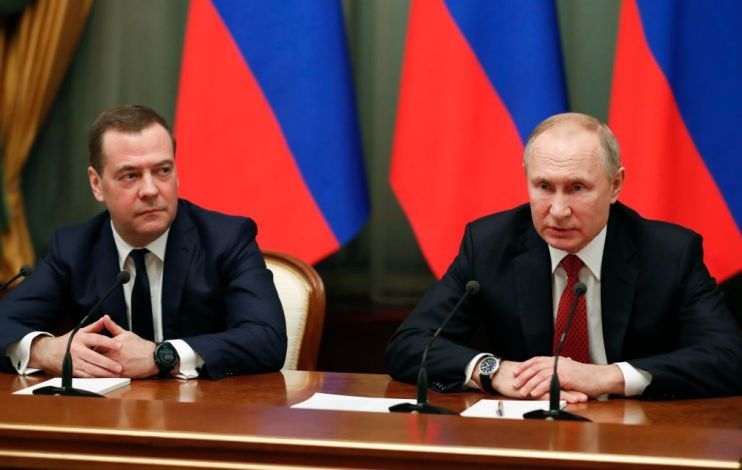Vladimir Putin announces government overhaul and names new prime minister

Russia’s prime minister and the entire government have resigned from their posts after President Vladimir Putin said he will hold a referendum on sweeping constitutional changes which could allow him to keep power when his term ends in 2024.
The resigning prime minister Dmitry Medvedev said he wanted to give Putin room to make “all the necessary decisions” before the changes come into effect.
Putin has moved between the posts of President and prime minister, meaning his 20-year grip on Russian politics is longer than Stalin’s. He is legally required to step down as President in four years’ time, having served two consecutive terms.
Under Putin’s plans, presidential power would be weakened and the powers of the prime minister, parliament and the advisory State Council would be beefed up.
The changes would let Putin, who is 67, either become prime minister once again or head of the State Council, keeping his grip on Russia. He said in his annual state of the union address that the plans would be put to a “people’s vote”.
“Putin doesn’t want power to leave his hands,” said Nikolai Petrov, senior Russia research fellow at Chatham House.
“In my view it looks now like Putin is eager to keep in his hands the control over security by chairing the Security Council and the control over strategic decisions made by the government by chairing the State Council,” he said.
Putin installed Medvedev as President from 2008 to 2012 and then took the job back again, all while maintaining the real power in Russia.
Putin announced yesterday that the little-known head of Russia’s tax service, Mikhail Mishustin, would become prime minister. Medvedev will become deputy head of the Kremlin’s security council, a newly created role.
Mishustin, who shares a passion for ice hockey with Putin, will be seen as a good bet for the next President. However, under Putin’s plans that role could be substantially less powerful.
There had long been speculation over whether Putin would step down in 2024, as he is legally obliged to.
Opposition politician Leonid Volov said the move showed Putin plotting to ensure he maintained power in Russia, even after relinquishing the presidency.
“It’s clear to everyone that everything is going exclusively toward setting Putin up to rule for life,” Volkov said on social media.